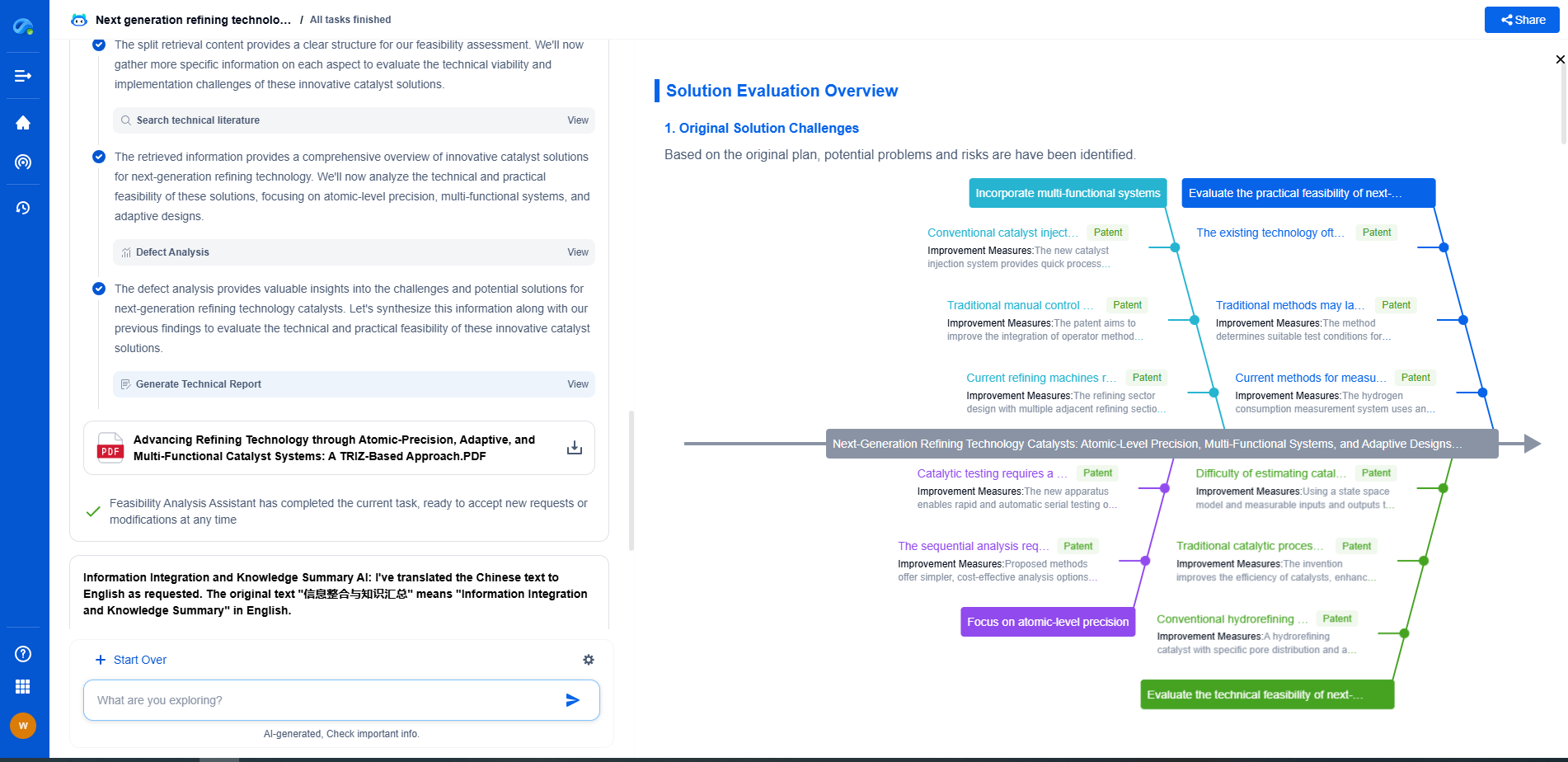Key Testing Standards for Flip-Chip Capacitor Packaging Reliability
JUL 9, 2025 |
In the realm of electronics manufacturing, flip-chip capacitor packaging has become a pivotal technology, enabling more compact and efficient device designs. However, with these advancements come the challenges of ensuring long-term reliability. Testing standards play a crucial role in evaluating and assuring the performance and durability of flip-chip capacitors. This article delves into some key testing standards that are essential for maintaining the reliability of flip-chip capacitor packaging.
Thermal Cycling Tests
Thermal cycling tests are crucial in assessing the reliability of flip-chip capacitors, particularly because these components often endure various temperature fluctuations during operation. This test simulates the thermal stresses that the capacitors might experience in real-world conditions. The capacitors are subjected to repeated cycles of heating and cooling, which helps in identifying potential failures due to thermal expansion and contraction. By adhering to established standards such as JEDEC JESD22-A104, manufacturers can predict how well the flip-chip capacitors withstand thermal stress and make necessary design adjustments.
Moisture Sensitivity Testing
Moisture sensitivity is another critical factor affecting the reliability of flip-chip capacitors. Moisture can infiltrate the packaging and lead to corrosion or electrical failures. Testing standards like IPC/JEDEC J-STD-020 are employed to evaluate how susceptible these components are to moisture-induced damage. This test typically involves exposing the flip-chip capacitors to humid environments and thermal stress to simulate solder reflow processes. Understanding moisture sensitivity allows manufacturers to implement protective measures such as improved sealing or the use of moisture-resistant materials.
Mechanical Shock and Vibration Tests
Mechanical shock and vibration tests are essential for ensuring that flip-chip capacitors can withstand physical stresses during handling, shipping, and operation. These tests assess the mechanical robustness of the packaging by subjecting the capacitors to controlled shock and vibration scenarios. The standards for these tests, such as MIL-STD-883, provide guidelines on the levels of shock and vibration that the capacitors must endure without compromising functionality. Through these tests, manufacturers can identify structural weaknesses and enhance the mechanical design of their products.
Electrostatic Discharge (ESD) Testing
Electrostatic discharge is a significant concern for electronic components, including flip-chip capacitors. ESD testing involves simulating electrostatic events to assess the components' ability to withstand sudden voltage spikes. Standards like ANSI/ESD S20.20 and IEC 61340-5-1 are commonly used for ESD testing. Successfully passing these tests ensures that flip-chip capacitors are less likely to suffer damage from static electricity, thereby enhancing their reliability and longevity.
High-Temperature Operating Life (HTOL) Test
The High-Temperature Operating Life (HTOL) test is designed to evaluate the reliability of flip-chip capacitors under prolonged high-temperature conditions. This test subjects the capacitors to elevated temperatures while applying electrical stresses, simulating extended operational periods. The goal is to accelerate aging and identify potential long-term failures. Adhering to standards like JEDEC JESD22-A108 provides valuable insights into the expected lifespan and performance stability of the capacitors, enabling manufacturers to make informed design choices.
Conclusion
The reliability of flip-chip capacitor packaging is critical to the overall performance and longevity of electronic devices. Adhering to key testing standards such as thermal cycling, moisture sensitivity, mechanical shock and vibration, ESD testing, and HTOL tests ensures that manufacturers can produce robust and reliable components. By continuously evaluating and improving these testing protocols, the industry can meet the ever-growing demands for smaller, more efficient, and reliable electronic devices.
Looking to accelerate your capacitor innovation pipeline?
As capacitor technologies evolve—from miniaturized MLCCs for smartphones to grid-scale energy storage devices—so must the way your team accesses critical knowledge.
Patsnap Eureka, our intelligent AI assistant built for R&D professionals in high-tech sectors, empowers you with real-time expert-level analysis, technology roadmap exploration, and strategic mapping of core patents—all within a seamless, user-friendly interface.
Try Patsnap Eureka now and discover a faster, smarter way to research and innovate in capacitor technology.
- R&D
- Intellectual Property
- Life Sciences
- Materials
- Tech Scout
- Unparalleled Data Quality
- Higher Quality Content
- 60% Fewer Hallucinations
Browse by: Latest US Patents, China's latest patents, Technical Efficacy Thesaurus, Application Domain, Technology Topic, Popular Technical Reports.
© 2025 PatSnap. All rights reserved.Legal|Privacy policy|Modern Slavery Act Transparency Statement|Sitemap|About US| Contact US: help@patsnap.com

